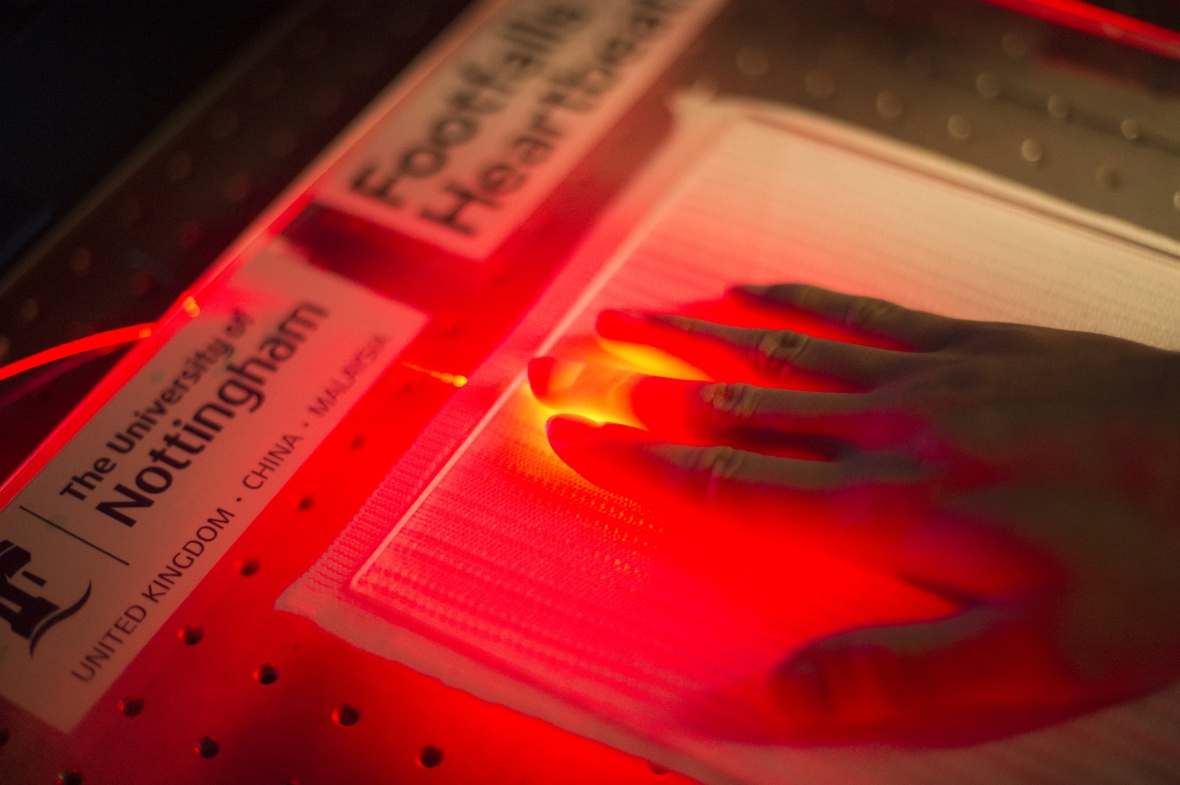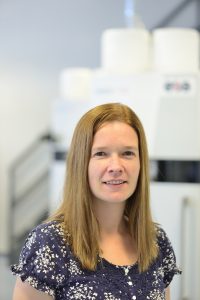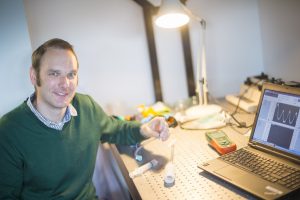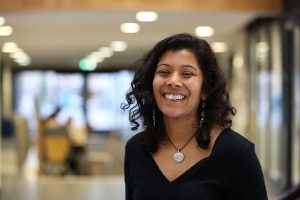
June 1, 2021, by Rob Ounsworth
Trio of success for healthcare technologies networks
The university has been awarded three new Engineering and Physical Sciences Research Council (EPSRC) healthcare technologies NetworkPlus grants.
The scheme supports interdisciplinary research networks working to deliver the science needed to transform healthcare.
Steve Morgan, Professor of Biomedical Engineering and co-director of the university’s Centre for Healthcare Technologies, is delighted that Nottingham was awarded three of the seven EPSRC NetworkPlus grants available.
“The University of Nottingham has an excellent track record of bringing together multidisciplinary teams to conduct ground breaking research for better healthcare. These awards will support leading national and international researchers develop next generation healthcare technologies.”
Professor of Additive Manufacturing Ruth Goodridge of the Faculty of Engineering leads the network on Next Generation Rehabilitation Technologies, in partnership with Loughborough University.
Dr Bindi Brook of the School of Mathematics leads the BIOREME network on Integrating data-driven biophysical models into respiratory medicine (with the universities of Oxford, Leicester, Warwick and Manchester).
Dr Serhiy Korposh of the Department of Electrical and Electronic Engineering, is co-investigator of the network on Future blood testing for inclusive monitoring and personalised analytics NetworkPlus (led by University of Reading with Universities of Warwick, Southampton and Kent)
The network led by Professor Goodridge will be linked to the new £70m National Rehabilitation Centre at Stanford Hall, for which co-investigators Professor Pip Logan of the University of Nottingham and Loughborough’s Professor Mark Lewis are the academic leads.
The centre will share a site with the Defence Medical Rehabilitation Centre and will benefit from shared expertise and resources. Professor Goodridge said: “The network award offers the UK engineering and physical sciences research community an incredibly timely opportunity to shape the direction of future rehabilitation technologies and provide a pipeline of innovations when the NRC opens to patients in 2024.
“Advances in medicine have resulted in a significant increase in survival rates from trauma and injury, disorders and disease. As more patients live with complex conditions, demand for rehabilitation grows. Virtual reality-based therapies, rehabilitation robotics, wearable devices, interactive media applications and direct neural control of prosthesis are just a few advances that can help speeding recovery, help patients lead more independent and fulfilling lives and reduce the burden on the NHS.”
Serhiy Korposh’s network will build an interdisciplinary community to explore future blood testing solutions to achieve remote, inclusive, rapid, affordable and personalised blood monitoring.
He said: “There is an extremely high demand for laboratory-based blood tests from community settings, with the pandemic highlighting this need. Patients attending a GP surgery or hospital for tests may have to travel and risk infection, while batch analysis can delay diagnosis. Remote blood-monitoring can address these challenges yet current blood analysis tools are mainly mechanical or labour-intensive, requiring extensive filtering and manual tweaking and are not suitable for regular at-home monitoring and longitudinal analytics.
“The network draws together expertise in information and communication technology (ICT), data and analytical science, clinical science, applied optics, biochemistry, engineering and social sciences to address three key technical challenges in blood testing: remote monitoring, ICT, Personalised data and AI.
“Our focus will be on examplar clinical areas including cancer, autoimmune diseases, sickle cell disease, preoperative care, pathology services and primary care.”
Dr Korposh’s research focuses on the development of portable bio and chemicals sensors using an optical fibre based sensing platform and he is leading on the remote monitoring theme.
He added: “This is an exciting opportunity to work with experts across various areas to shape the future of blood testing.”
Dr Bindi Brook leads the BIOREME (Integrating data-driven biophysical models into respiratory medicine) network.
Lung diseases such as asthma and chronic obstructive pulmonary disease affect one in five people in the UK and kill someone every five minutes. The number of patients with these lung diseases was increasing in the NHS even before the pandemic, and the serious long-term effects of Covid-19 are likely to add this burden on the NHS.
Dr Brook said: “There have been huge advances in technologies that allow scientists to see inside the lungs and measure what we breathe out, yet it is still difficult to combine different sources of information and turn it into new or improved treatments. Getting that useful information out of large amounts of medical test results requires sophisticated physics-based mathematical and statistical models run on powerful computers – a combination of techniques called data-driven biophysical multiscale modelling. The ability to develop those kinds of models will allow us to better understand how diseases start and how they progress.
“Our BIOREME network will support new research that uses these techniques to mimic biological and mechanical processes that occur throughout the lung. Using the information from thousands of lung tests, the idea is then to get these models to mimic real diseased lungs. In order to improve and build trust in these models, some of our projects will be focused on comparing their outputs to results from other lung tests. Medical scientists can then use such models to test what might happen in a particular type of lung disease, and to investigate possible responses to new treatments before testing these in patients. Most importantly, this will lead to the design of new drugs and improved trials for new treatments.”
No comments yet, fill out a comment to be the first




Leave a Reply